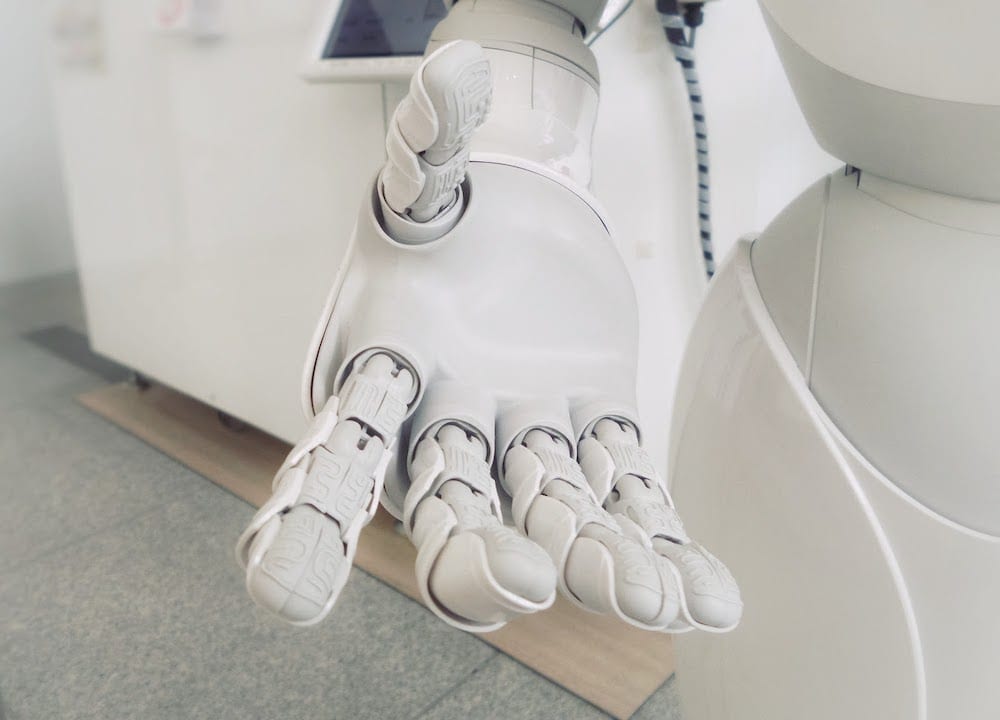Machines are getting better at learning the way humans do. Although we still don’t have “strong artificial intelligence,” or machines that can think abstractly, emotionally, and creatively, machines have learned to do singular tasks very well.
Machine learning, or ML, combines computer science, statistics, and most importantly, mathematics, to enable a machine to complete a task without being programmed to do so.
Data is input into these machine learning algorithms and they can then make decisions and predictions. Mathematics is part of the foundational knowledge required to become a machine learning pro.
What Is Machine Learning?
Machine learning is all about using the future of technology to help humans. As computer algorithms get more robust, it is becoming easier for humans to compare data and gain valuable insight.
Furthermore, as technology progresses and machine learning improves, we are getting closer to creating the kind of artificial intelligence we so often see in movies. ML uses mathematical strategies to improve a machine’s learning abilities, in the hopes that one day machines surpass human learning.
What Is Machine Learning Used For?
In 2020, machine learning uses a set of operations called an algorithm, which is based on calculations and problem-solving. Mathematical knowledge is at the forefront of writing algorithms. Below are some examples of where to find machine learning in society and online.
- Facebook. The company has created a facial recognition algorithm for photographs. Facebook’s researchers are discovering ways to implement deep learning in the Facebook algorithm to make it easier to tag yourself and your friends in photos.
- Uber. Uber’s apps use machine learning to create a better user experience. Machine learning is used to estimate arrival times and predict where you want to go.
- Google Translate. Google Translate uses thousands of translated texts to help people break through language barriers. Although this algorithm is not always entirely accurate, it is an extremely helpful tool for travelers.
- KUKA. A German manufacturer is using machine learning in its robotic arms intended for factory automation. These innovative arms can easily move objects thanks to data analytics and machine learning.
- Amazon Ads. The use of algorithms means that you will see recommended advertisements on a variety of websites for items similar to those you have searched previously. ML can recommend products or services based on the data from your search history.
Learning Mathematics for Machine Learning
Although learning a coding language like Python is essential to ML, learning mathematics is the key to understanding it. To become an ML professional, you will need to be confident in linear algebra, calculus, probability, and statistics.
Math is needed for machine learning because computers see the world differently from humans. Where humans see an image, a computer will see a 2D- or 3D-matrix. With the help of mathematics, we can input these dimensions into a computer, and linear algebra is about processing new data sets.
Math Required for Machine Learning
There are a few types of math to learn for machine learning. Read our descriptions of these types of mathematics to get an idea of what you need to know.
Multivariate Calculus
In calculus, you will learn about integrals, derivatives, and gradient descent. Integrals and derivatives are vital for modeling different types of distributions of data and creating simulations. Gradient descent is the key to learning about neural networks.
Statistics
The first things to understand in statistics are probability theory and Bayes Theorem. Probability is the idea of distributions and randomness, which are the fundamentals of algorithms.
Descriptive statistics are an important part of a data scientist’s work, as it focuses on analyzing correlations. Machine learning also involves hypothesis testing and linear regression within statistics, which is used to ask questions, test theories, and plot data lines.
Discrete Math
Discrete mathematics is the foundational knowledge behind computer science. It involves inductive and deductive reasoning, graph theory, recursion, and algorithm complexity. It’s about evaluating models based on the time and difficulty involved in making them.
Linear Algebra
Linear algebra is integral to many machine learning algorithms, such as deep learning. The most important parts are matrices and vectors because they are a major component of Python. You will also learn about matrix multiplication, Eigenvalues, and Eigenvectors.
The Best Math for Machine Learning Courses

There are many ways to learn the mathematical concepts used in ML, including in-person classes, online courses, and free courses. Browse our list below to discover the best math for machine learning courses.
In-Person Math for Machine Learning Classes
Here are a few in-person courses and programs you may want to pursue. Due to the COVID-19 pandemic, fewer courses are offering in-person learning. However, there are still a few options for those of you who prefer the classroom.
General Assembly
- Location: General Assembly, New York
- Course: Data Science Course: NYC
- Time: 3 Months
- Prerequisites: Programming with Python, basic statistics
- Price: $3,950
General Assembly provides many full-time and part-time classes in different tech skills all across the US. Students can learn the fundamentals of Python programming, statistics, and applied math. You can take their courses online, or attend the data science course at one of their locations, including New York City.
Edx
- Location: UC San Diego
- Course: Probability and Statistics in Data Science using Python
- Time: 10 Weeks
- Prerequisites: MicroMasters program: DSE200x course, undergraduate education in multivariate calculus linear algebra
- Price: $350.37 for a certificate
In this MicroMasters program by UC San Diego, students will learn all about probability and statistics. Students will also learn random variables, dependence, correlation, regression, MLD, entropy, and PCA. You can also choose to take the class online.
Online Machine Learning Math Courses
Below are a few online math for ML courses if you want to gain foundational knowledge from the comfort of your home. These are great for all levels of machine learning mathematics.
Khan Academy
- Courses: Linear Algebra
- Price: Free
Khan Academy provides world-class math and science courses for free. These three courses are packed with information on linear algebra, statistics, and multivariate calculus.
Skillshare
- Course: Data Science and Machine Learning Prerequisite in Mathematics
- Time: 1 Hour
- Price: Premium Skillshare Account
This Skillshare course is great for all levels who want to learn the fundamental mathematics for machine learning.
Coursera
- Course: Mathematics for Machine Learning Specialization
- Time: 4 Months
- Prerequisites: None
- Price: Free to enroll
In this four-month Coursera class provided by Imperial College London, students will gain an introduction to mathematics for machine learning. Students will learn linear algebra, multivariate calculus, and Principal Component Analysis all in one course.
Hong Kong University of Science and Technology
- Course: Mathematics Seminar on Data Science and Machine Learning
- Time: 1 Hour
- Prerequisites: None
- Price: Free
This seminar by Hong Kong University of Science and Technology is one hour long and is presented in English. It delves into the continuous limit theory for modeling stochastic alternating direction method of multipliers (ADMM) variants. This is an excellent seminar for those interested in more advanced machine learning professionals.
Future Learn
- Course: Advanced Machine Learning
- Time: 3 Weeks
- Prerequisites: Experience in machine learning, data science, or statistical and machine learning modeling
- Price: Free
This cutting-edge course by Future Learn involves advanced mathematics, including statistics, linear algebra, calculus, and information theory. This is great for advanced students who want an intense ML and mathematical education.

"Career Karma entered my life when I needed it most and quickly helped me match with a bootcamp. Two months after graduating, I found my dream job that aligned with my values and goals in life!"
Venus, Software Engineer at Rockbot
Should You Study Machine Learning?

According to the US Bureau of Labor Statistics, a computer and information research scientist can earn a median salary of $122,840 per year. Mathematics for machine learning can help you begin your machine learning journey.
We hope this article has prepared you to go out there and tackle the mathematical equations that will lead to your machine learning success. Another top tip is to read the machine learning book Mathematics for Machine Learning by Marc Peter Deisenroth, which will give you significant insight into everything mathematics and ML.
Check out our other articles if you’re still looking for further information on the difference between data science, machine learning, and AI.
About us: Career Karma is a platform designed to help job seekers find, research, and connect with job training programs to advance their careers. Learn about the CK publication.



